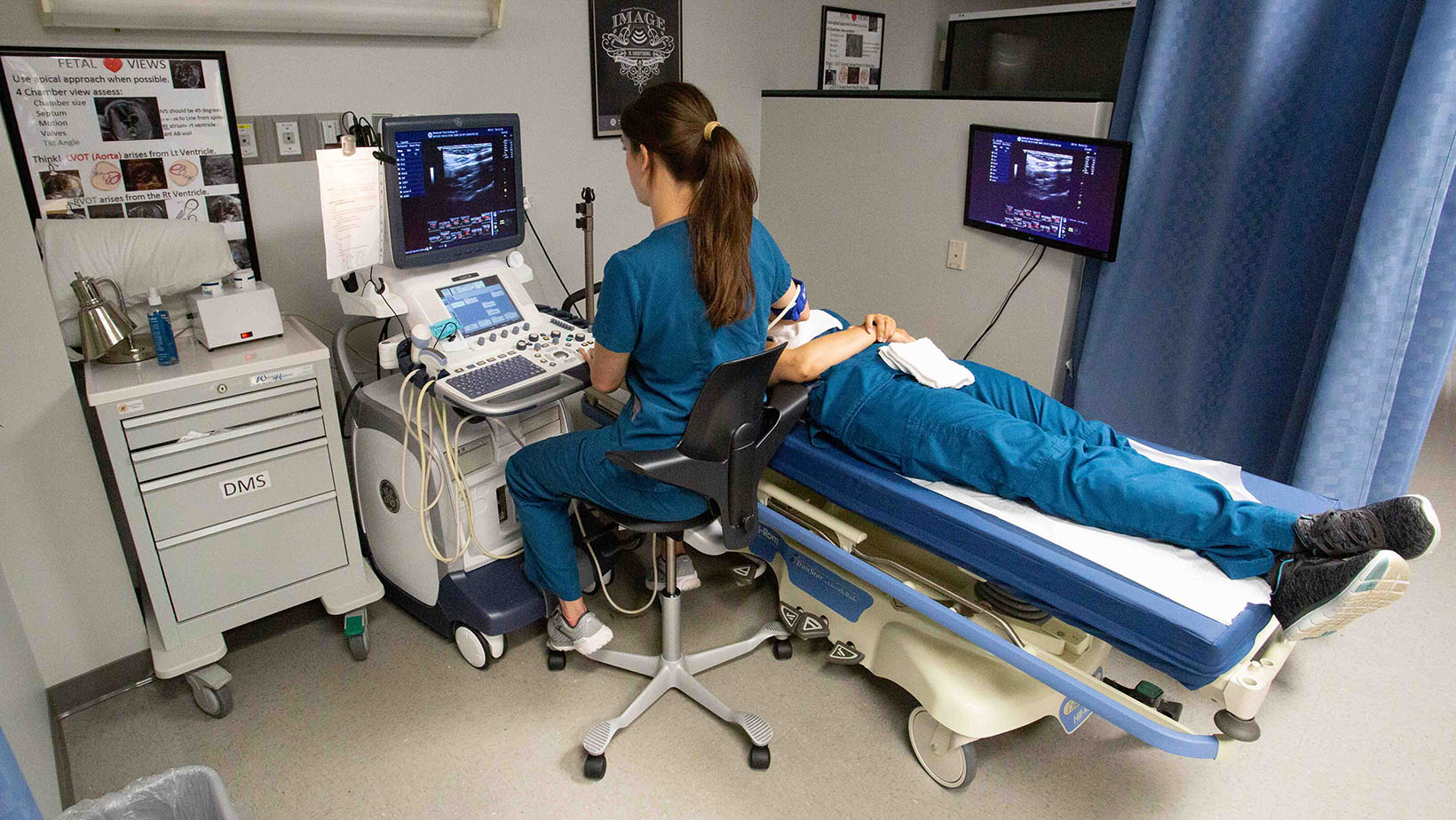Ultrasound technology, also known as diagnostic medical sonography, is an integral part of modern healthcare. It’s a fast-growing field, making it a desirable career choice for those interested in the medical profession but looking for a quicker entry into the industry. If you’re considering a career in this field, attending an ultrasound technician trade school could be the perfect route. This article explores everything you need to know about ultrasound technician trade schools, from the curriculum to the career outlook.
What Does an Ultrasound Technician Do?
An ultrasound technician, or sonographer, operates specialized imaging equipment that captures images of the inside of a patient’s body. These images assist doctors in diagnosing and treating medical conditions. To excel in this role, a strong understanding of human anatomy and physics is required, along with the technical know-how to operate ultrasound machines effectively. Sonographers often interact directly with patients, making this career both technically demanding and personally rewarding.
Why Consider a Trade School for Ultrasound Technology?
Opting for a trade school to study ultrasound technology is an efficient way to enter this career. Unlike traditional four-year degree programs, ultrasound technician trade schools focus solely on the skills and knowledge you’ll need for the job. This focused approach allows you to complete your education faster and enter the workforce sooner. Most programs take between 18 to 24 months to complete.
Faster Path to Enter the Workforce
One of the main reasons many students choose a trade school over a traditional college is the shorter time frame. Trade school programs for ultrasound technicians typically take around two years or less to complete. This accelerated pace allows students to gain the necessary skills and certification in a fraction of the time, helping them transition into the job market quickly. In contrast, a traditional college degree may take four years to earn.
Hands-On Training
Ultrasound technician trade schools emphasize practical, hands-on training. You’ll spend time in a clinical setting, working with real ultrasound equipment and learning how to perform imaging procedures under supervision. This approach ensures you’re not just learning from textbooks but also gaining experience that will be directly applicable when you begin working.
In addition to hands-on practice, trade schools provide a structured curriculum that covers topics such as human anatomy, patient care, physics, and medical ethics. You’ll also learn how to interpret the images you capture, which is critical for helping doctors make accurate diagnoses.
Specialized Curriculum
Trade schools offer a specialized curriculum that’s tailored to the role of an ultrasound technician. You’ll start by learning the fundamentals of human anatomy and physiology, focusing on the cardiovascular, abdominal, and reproductive systems. Understanding these systems is crucial, as you’ll often be scanning these areas in your future role.
Courses in medical ethics and patient care are also essential parts of the program. As an ultrasound technician, you’ll be interacting with patients regularly, often in stressful or sensitive situations. Understanding how to provide compassionate care while maintaining professional standards is key to success in this field.
The curriculum also covers the technical aspects of operating ultrasound equipment, understanding how sound waves work in medical imaging, and learning to troubleshoot the machines. Some programs may offer advanced training in specific areas of sonography, such as obstetrics or cardiovascular imaging.
Accreditation and Certification
Choosing an accredited ultrasound technician trade school is crucial. Accreditation ensures that the program meets specific standards of quality and will prepare you for certification exams. The Commission on Accreditation of Allied Health Education Programs (CAAHEP) is the main accrediting body for ultrasound technician programs in the U.S.
Once you complete your training, you’ll need to pass a certification exam, typically offered by the American Registry for Diagnostic Medical Sonography (ARDMS). Becoming certified enhances your credibility and increases your employability in this competitive field. Many employers prefer or require certified ultrasound technicians.
Career Outlook for Ultrasound Technicians
The career outlook for ultrasound technicians is highly promising. According to the U.S. Bureau of Labor Statistics, employment in this field is expected to grow by 14% from 2022 to 2032, much faster than the average for all occupations. This growth is driven by an aging population and the increasing use of ultrasound technology in various medical fields.
Ultrasound technicians can work in a variety of healthcare settings, including hospitals, private clinics, diagnostic laboratories, and specialty practices. As you gain experience, you may also have opportunities to specialize in specific areas of ultrasound, such as cardiac sonography or pediatric imaging.
Salary Expectations
Ultrasound technicians earn competitive salaries, with the median annual wage for diagnostic medical sonographers being around $77,000, according to the latest data from the Bureau of Labor Statistics. Salaries can vary based on factors like location, experience, and specialization. Technicians who work in specialty areas or in high-demand regions may earn higher wages. Additionally, gaining advanced certifications or experience can significantly increase earning potential over time.
Skills Required to Succeed as an Ultrasound Technician
To succeed as an ultrasound technician, you need more than just technical knowledge. Strong communication skills are essential, as you’ll often need to explain procedures to patients and reassure them during the process. You should also have a keen attention to detail, as capturing high-quality images is crucial for accurate diagnoses.
Physical stamina is also important, as ultrasound technicians spend a lot of time on their feet and may need to assist in positioning patients. Lastly, having a passion for healthcare and helping others will serve you well in this role, as it involves working closely with both patients and medical teams.
Continuing Education and Advancement Opportunities
The field of ultrasound technology is constantly evolving, with advancements in imaging techniques and equipment. As a result, continuing education is often necessary to stay current. Many ultrasound technicians choose to pursue additional certifications in specialized areas, such as vascular sonography or breast imaging. These certifications not only enhance your skills but also make you a more attractive candidate for higher-paying positions techtrader.xyz/.
There are also opportunities for career advancement. With experience, ultrasound technicians may move into supervisory roles, manage sonography departments, or become educators within the field. Some may also choose to pursue further education to become advanced imaging professionals or even radiologists.
Conclusion
Ultrasound technician trade schools offer a fast, effective way to enter the healthcare field. By providing hands-on training, specialized knowledge, and the skills needed to pass certification exams, these programs equip you to begin a rewarding career in a rapidly growing industry. Whether you’re interested in working in a hospital, clinic, or specialized practice, becoming an ultrasound technician opens the door to a fulfilling career that combines cutting-edge technology with compassionate patient care.




